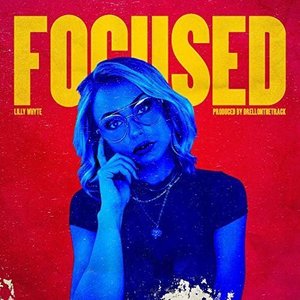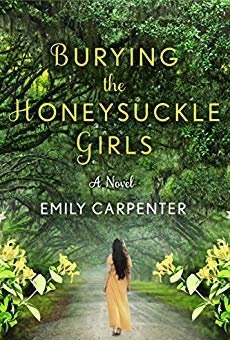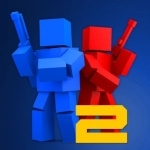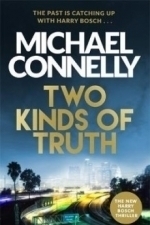
Daily Blends
Food & Drink and Health & Fitness
App
Daily Blends is the ultimate plant-based recipe app by Simple Green Smoothies, with a community of...
Kristy H (1252 KP) rated Hold Still in Books
Feb 13, 2018
This was an interesting book. It's told in chapters that alternate between Ellie's perspective and Maya's; they also alternate in time: before the event and after. The before chapters lead right up to said event. You know generally what has happened, but not how, so it's surprisingly suspenseful for a book that's mainly about emotions and feelings. As such, the novel conveys a stressful tension immediately. It also does an excellent job of delving into the frightening ramifications of becoming a parent. How much do we influence what our kids become? We see Maya--herself so influenced by her own family situation--and then realize her own effects on Ellie. It's startling and humbling.
However, there is a little bit of a "been there, done that" feeling when reading, of experiencing yet another novel of well-off New York parents screwing up their kids. Neither Maya nor Ellie are really likable in any capacity, and while that's not a problem per se, they are harder to relate to than one would think. (Also not likable: her husband. I felt great sympathy for the younger son, Ben.) There were moments I found myself drawn to Maya, but overall, she was too distant and too horrible to really feel any connection to whatsoever. That fact that she's nearly as immature as her daughter was perhaps the point, but I'm not sure it was one I enjoyed or felt was worth making. Also, the plotlines related to Maya's teaching assistant and other friends seem odd and inserted into the story at times.
Still, it was a well-written novel and the somewhat parallel storylines of a lost and drifting mother and daughter were well-done. I'm not sure about the ending, though. In fact, for a good part of the book, I found myself wondering more about Maya's friend, Annie. I think her story might have been one I would have enjoyed more. Overall, the novel certainly makes you feel and the parenting elements resonate. But will it stay with me? I don't think so.
I received an ARC of this novel from Netgalley (thank you!); it is available for U.S. publication on 3/21/16. You can check out a review of this novel and many others on my <a href="http://justacatandabookatherside.blogspot.com/">blog</a>;.
Bong Mines Entertainment (15 KP) rated Focused - Single by Lilly Whyte in Music
Jun 17, 2019
“I been working hard, I know its gonna take time. I can’t let down my guard, can’t let nobody take my shine, I need to just focus. Please just let me focus. I been down before and I ain’t never going back. I’m hungry for more so tell me where the money at. I’m just being honest. I’m gonna get it regardless.” – lyrics
‘Focused’ tells an encouraging tale of a determined young woman who is focused on getting what’s hers. But, as she gets closer to accomplishing her goals, there’s a guy in her life who’s trying to get close to her.
Even though she’s not looking for closure with him, she knows deep down she can’t afford to lose her concentration to distractions. Therefore, she chooses to stay motivated and refuses to let him come remotely close to disrupting her grind.
‘Focused’ contains a relatable storyline, harmonious rap vocals, and melodic instrumentation flavored with contemporary R&B and hip-hop elements.
“So excited about this record because it’s the first song I actually recorded all by myself. I literally wrote this song in my head as I was teaching myself how to engineer. FOCUSING on my craft and not letting anything stop me. FOCUSED is the product of me staying up all night in my little at-home-studio and not giving up. This song is very motivational which is why it’s one of my all-time favorites. I’ve always had a hard time focusing on what I’m supposed to be doing because I’m always so easily distracted. It can be really frustrating sometimes. I literally have to tell myself to just FOCUS, but this song is way more than that.” – Lilly Whyte
Lilly Whyte struggled with health and addiction issues, along with becoming a mother at a young age.
With a determination and drive inherent only to single mothers, she overcame her hardships by using music as an outlet for healing and growth.
She represents love, peace, and diversity, writing lyrics that are rich, fiery and full of meaning. Her stories cover themes such as empowerment, positivity, and self-acceptance.
Also, she’s an accomplished dancer, and her love for Lil Wayne’s music has garnered her the nickname, Lil Wheezy.
“I call out a certain someone for trying to come into my life and distract me. I have way too many trust issues from past experiences and I’m sure a few of you can relate. The beat was produced by DrellOnTheTrack and it has a guitar in the melody which is ironic as I also play the guitar. Hope you gain as much from this track as I did and don’t forget to STAY FOCUSED!” – Lilly Whyte
https://www.bongminesentertainment.com/lilly-whyte-focused/
Kristy H (1252 KP) rated Burying the Honeysuckle Girls in Books
Jun 21, 2019
This won't be a very long review, because I listened to this book on audiobook (technically the audio that comes with my Kindle Unlimited subscription), and I couldn't take any notes or do any highlighting as I listened, as I was in the car. But I do want to point out that this is the *first ever* audiobook that I've ever listened to from start to finish! I'm not very good with verbal listening--even in college lectures, I had to take copious notes to retain the information, and I could just never keep up with audiobooks: my brain always wandered off. But I was commuting a lot for work and gave this one a try. It stuck!
This book felt a little slow in places, but now I'll never know if it was because it was an audiobook or what. I felt bad for Althea, who really seems to have received a bum rap: mother dies when she's a kid, a pretty awful brother, drug addiction, and more. She's a rather compelling narrator, and her family's backstory is interesting. The whole "I'm going to go crazy when I'm 30" thing seemed a little overblown and histrionic at times--seriously, you can't truly think the moment you turn 30, everything changes. But, I still found myself caught up in Althea's story, and I really loved hearing about her grandmother and her own struggles in the '30s. There were pieces of this book that were really touching and heartbreaking and the last half, especially, really got to me.
Overall, it was fun to explore an audiobook. It sure made my two-hour (each way) commute more palatable, and I found myself fascinated that one-person could do the voices of so many people. I found this story pretty compelling and liked the fact that it spanned several generations. The points it made about mental illness--especially the way women were treated in the past (and even now, really)--were very illuminating and well-done. 3.5 stars.

Drops: Learn French language
Education and Games
App
Ever felt entertained while learning a new language? Now you will! Drops is game-changing approach...

Drops: Learn 23 new languages
Education, Games and Stickers
App
"Ever felt entertained while learning a new language? Now you will! Drops is game-changing approach...
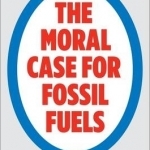
The Moral Case for Fossil Fuels
Book
Could everything we know about fossil fuels be wrong? For decades, environmentalists have told us...

Away ~ Meditation & mindfulness to sleep, relax, focus, breathe
Health & Fitness and Lifestyle
App
Those days when your night was shorter than anything you can measure. Those moments when you'd love...
Kristy H (1252 KP) rated Two Kinds of Truth (Harry Bosch #20) in Books
Jan 10, 2018
I love Harry Bosch so much, and there will be a hole in my heart when Connelly no longer writes about him. I actually moved this book up in my rotation (something I rarely ever do!) so I could read it on a weekend trip to Chicago, and my only regret is that it meant I finished it in about 48 hours, and now it's over. Per usual, Connelly gives us yet another wonderful mystery novel featuring his excellently developed lead detective. This one covers the timely topic of the opiate crisis, which looms fairly large in America today. It's well-researched, as always.
Reading a Bosch novel is like picking up with an old friend, and this one is no different. Our Bosch is aging, which this book acknowledges well. We see Bosch still grappling with having left the LAPD--who can he trust, what can he do with his life now. We even get some appearances from previous characters in earlier novels. Perhaps the best thing is a fairly large role for Bosch's half brother Mickey Haller, the famed "Lincoln Lawyer." These two are still figuring out their own relationship, but it's a treat for us readers to get a glimpse of Mickey; we even get to see some of his enjoyable courtroom antics. There's even an appearance from Mickey's investigator, Cisco! (See, it's like being old friends!)
And, of course, we can't forget the actual story, which, in usual Connelly style is excellent and tracks along flawlessly along Bosch's own journey. The opiate tale is both fascinating and depressing, while Bosch's unraveling of the backstory behind the reopened cold case will certainly keep you reading. There's never really any crazy twists or turns, but the novel moves along steadily and easily. There's both growth and angst with Bosch--I have to admit, I worry about the end of his arc, but I will still enjoy every moment I get with him until them.
Another enjoyable one for the Bosch canon--certainly recommend!

